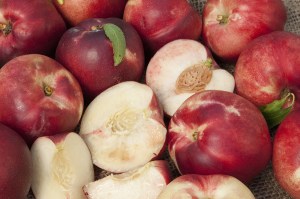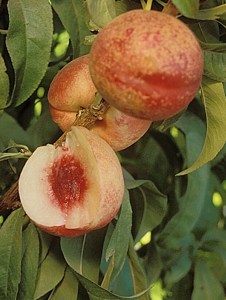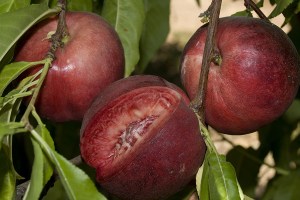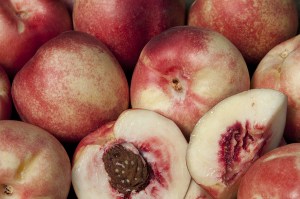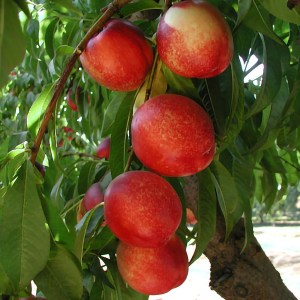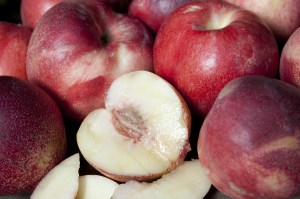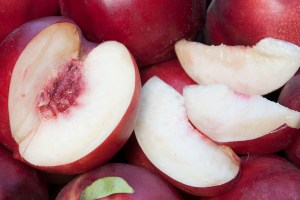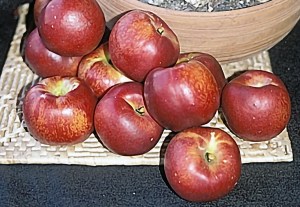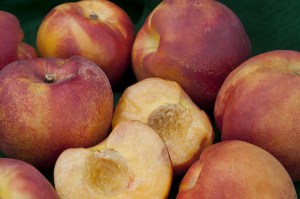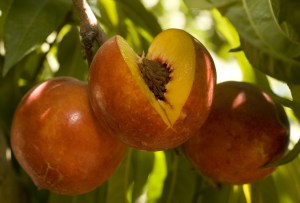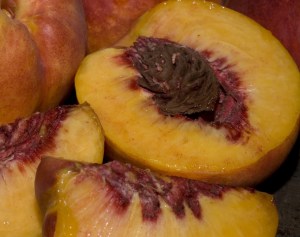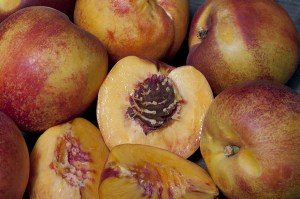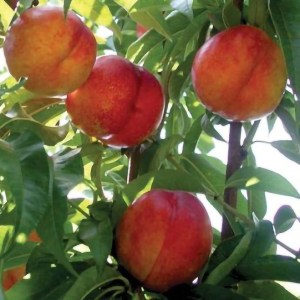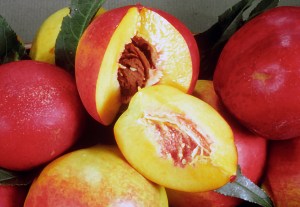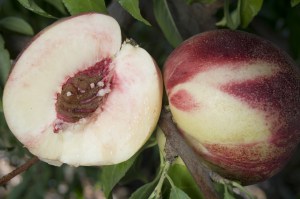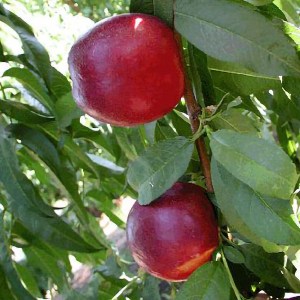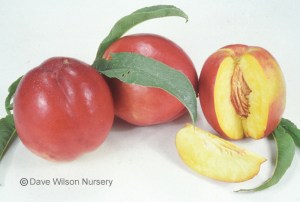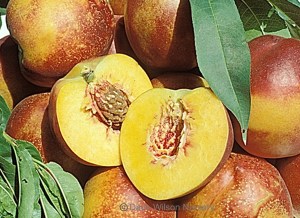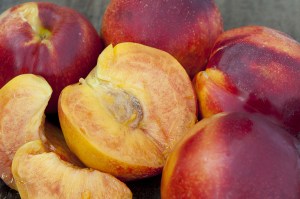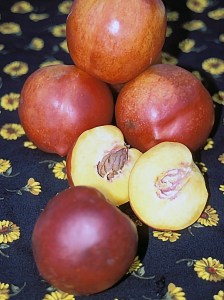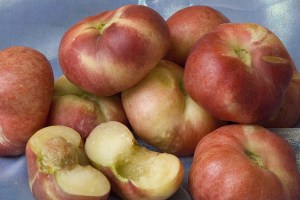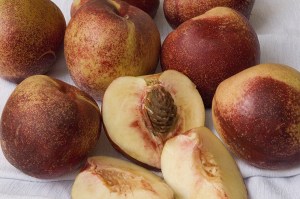Nectarines
Bare Root Nectarines
 Nectarines and peaches are very similar – the trees look alike, they are susceptible to the same insects and diseases and both can have either yellow or white flesh. They also both have a wide range of climate adaptability and many subtle taste distinctions. Botanically, peaches are Prunus persica and nectarines are Prunus persica nucipersica. There are, however, some notable differences. Nectarines do not have fuzzy skin and they have a very distinctive flavor all their own.
Nectarines and peaches are very similar – the trees look alike, they are susceptible to the same insects and diseases and both can have either yellow or white flesh. They also both have a wide range of climate adaptability and many subtle taste distinctions. Botanically, peaches are Prunus persica and nectarines are Prunus persica nucipersica. There are, however, some notable differences. Nectarines do not have fuzzy skin and they have a very distinctive flavor all their own.
The most recent breakthroughs in nectarine breeding involve the white fleshed varieties. The Zaiger family, who have introduced many new fruit varieties in the last twenty years, are responsible for the Arctic series which includes Arctic Blaze, Arctic Glo, Arctic Jay, Arctic Queen, Arctic Rose and Arctic Star. These are all delicious white fleshed nectarines. The ripening season starts with Arctic Star (the lowest chill variety) in mid to late June and ends with Arctic Blaze which ripens in late August.
More About Nectarines
You can have an extended nectarine season by planting carefully selected varieties. For example, Independence ripens in late June, Harko early July, Fantasia in late July to early August and Liz’s Late ripens late August to early September. If you would like to receive a fruit ripening chart to help you plan this kind of successive harvesting, send us a self-addressed business sized envelope with a first class postage stamp.
The white flesh peaches and nectarines tend to be sweeter than the yellow fleshed varieties. For those of you with a fruit sweet tooth, we offer a multiple budded tree with white fleshed varieties of both nectarines and peaches. Refer to the section on Multiple Budded Fruit Salads.
You can substitute nectarines in any peach recipe and there’s no need to peel the fruit. Nectarines are excellent in pies, tarts or chutney and they’re delicious sliced and served over ice cream or pancakes.
In our climate, peach leaf curl, a fungal disease that attacks both peaches and nectarines, is a real problem. Areas with cool, moist springs are generally affected. The suggested treatment is a spray of copper sulfate (at least 90% copper) applied during the tree’s dormant season, December through February. Spray at least twice during this period, three times if possible. The last spray should be applied just prior to bud opening. This treatment is also effective for another fungal disease, brown rot of stone fruit.
Nectarines should be pruned in the same manner as peaches. Once you have established your main structure, take down approximately 2/3 of the growth every year, either by cutting back or thinning. Thin out the small fruit as well, to avoid a harvest of under-sized nectarines. If you have a problem with birds and don’t wish to net your trees, we offer Holographic Scare Tape (see Orchard & Garden Supplies).
Nectarine Rootstocks
CITATION (Cit.)
Peaches and nectarines dwarfed to 8-14 ft.; apricots and plums dwarfed to 12-18 ft. Very tolerant of wet soil; not drought tolerant (induces early dormancy in dry soil) so needs very regular water in hot climates. A top dressing of mulch can help maintain soil moisture. Resists root knot nematodes. Induces heavy bearing at a young age. Very winter hardy. Strong and well anchored. Pat. No. 5112 (Zaiger).
NOTE: For areas with very hot, dry climates we do not recommend Citation root stock. We have had reports from customers in Texas and Arizona who have had much better luck with Nemaguard. We realize some of the varieties are only offered on Citation and, if you wish to plant those varieties, be sure to supply adequate irrigation.
LOVELL (Lov.)
Vigorous, standard rootstock for plums, peaches, nectarines, apricots, prunes, almonds. More tolerant of wet soils than Nemaguard; also more cold hardy. Susceptible to nematodes in sandy soils. Provides good anchorage and high degree of disease resistance. Unpruned tree height of standard varieties 15-25 ft.; size can be controlled further with summer pruning.
NEMAGUARD (Nema.)
Standard rootstock for nectarines, peaches, apricots, plums, prunes, almonds. Vigorous, resists root knot nematodes. Excellent for well drained soils. In heavy or poorly drained soil, plant on mound or hill. May not be winter hardy below 5°F. Unpruned tree height of standard varieties 15-25 ft., but size can be controlled further with summer pruning.

